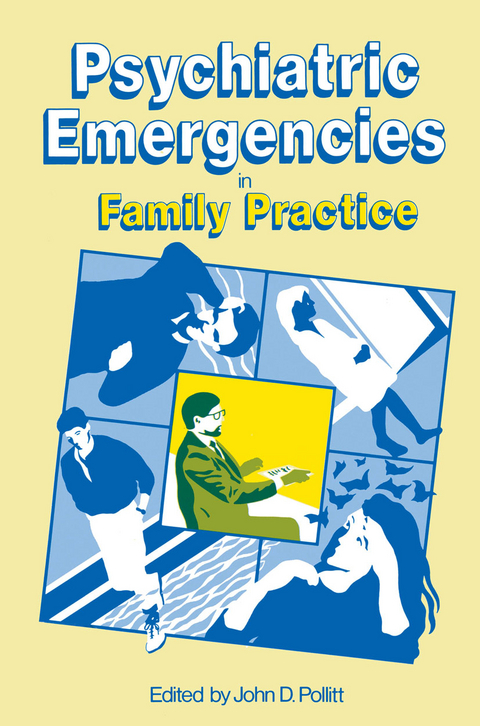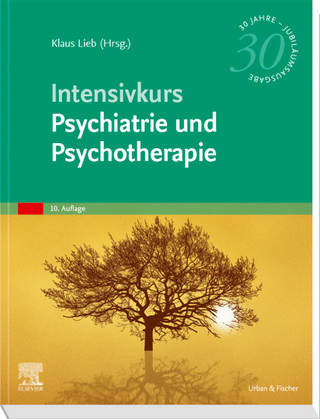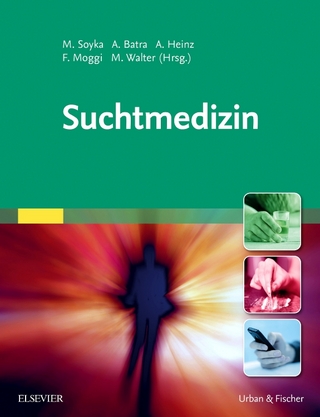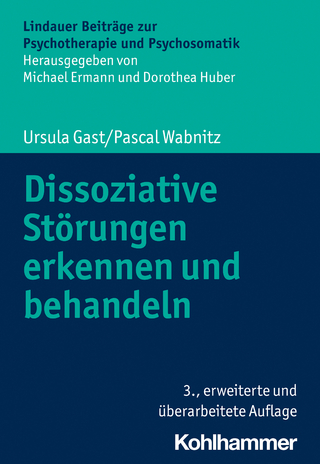
Psychiatric Emergencies in Family Practice
Seiten
2011
|
Softcover reprint of the original 1st ed. 1987
Springer (Verlag)
978-94-010-7931-0 (ISBN)
Springer (Verlag)
978-94-010-7931-0 (ISBN)
but this illness needs to be considered in the diagnoses of three acute emergencies: the agitated patient, the withdrawn patient and the suicidal patient. Withdrawn and retarded patients with depres sive illness are at risk of failing to eat or care for themselves.
Crises are not a feature of depressive illness; but this illness needs to be considered in the diagnoses of three acute emergencies: the agitated patient, the withdrawn patient and the suicidal patient. A. The agitated patient. Restless, anguished, phrenetic and impor tunate behaviour. Differential diagnoses include hypomania, acute anxiety and grief, hysteria, drug intoxication, thyrotoxicosis, cerebrovascular accident or cerebral tumour. Agitated depression carries a relatively high risk of suicide. Management usually requires admission and use of adequate doses of antidepressant and neuroleptic drugs, and often ECT. B. The withdrawn patient who avoids social contacts and obligations and is often slowed up in mind and body. Differential diagnoses in clude schizophrenia, CVA or tumour, hysteria and semi-coma includ ing drug intoxication. Withdrawn and retarded patients with depres sive illness are at risk of failing to eat or care for themselves. C. The suicidal patient. May present as unexpected, inexplicable coma; a badly cut patient may be confused by the doctor with acci dent or assault. The immediate emergency is medical or surgical: treatment is for coma, bleeding or asphyxia, and requires immediate admission to casualty. The first presentation of depression is always a minor emergency as it may be the only attempt the patient makes to see a doctor. Diagnosis must be positive, based on the recognition of depres sive features, not negative, based on the exclusion of other dis eases. The cardinal symptoms of depressive illness: 1. Disturbed sleep pattern. 2. Change in appetite for food.
Crises are not a feature of depressive illness; but this illness needs to be considered in the diagnoses of three acute emergencies: the agitated patient, the withdrawn patient and the suicidal patient. A. The agitated patient. Restless, anguished, phrenetic and impor tunate behaviour. Differential diagnoses include hypomania, acute anxiety and grief, hysteria, drug intoxication, thyrotoxicosis, cerebrovascular accident or cerebral tumour. Agitated depression carries a relatively high risk of suicide. Management usually requires admission and use of adequate doses of antidepressant and neuroleptic drugs, and often ECT. B. The withdrawn patient who avoids social contacts and obligations and is often slowed up in mind and body. Differential diagnoses in clude schizophrenia, CVA or tumour, hysteria and semi-coma includ ing drug intoxication. Withdrawn and retarded patients with depres sive illness are at risk of failing to eat or care for themselves. C. The suicidal patient. May present as unexpected, inexplicable coma; a badly cut patient may be confused by the doctor with acci dent or assault. The immediate emergency is medical or surgical: treatment is for coma, bleeding or asphyxia, and requires immediate admission to casualty. The first presentation of depression is always a minor emergency as it may be the only attempt the patient makes to see a doctor. Diagnosis must be positive, based on the recognition of depres sive features, not negative, based on the exclusion of other dis eases. The cardinal symptoms of depressive illness: 1. Disturbed sleep pattern. 2. Change in appetite for food.
1 Deluded Patients.- 2 Suspicious Patients.- 3 Alcoholic Patients.- 4 Hallucinated Patients.- 5 Depressed Patients.- 6 Suicide and Parasuicide.- 7 Hysterical Patients.- 8 Frightened Patients.- 9 The Presentation and Care of the Rape Victim.- 10 Psychiatric Emergencies in Children and Adolescents.- 11 Disturbed Adolescents.- 12A The Bereaved Adult.- 12B The Bereaved Child.- 13 Vulnerable Students.- 14 Dangerous Patients.- 15 Demented Patients.- 16 Problems Arising after Therapeutic Abortion.- 17 Puerperal Emergencies.- 18 Emergencies Arising from the Non-Medical Consumption of Drugs.- 19 Excited Patients.- 20 Confused Patients.- 21 Moody Patients.
| Zusatzinfo | 256 p. |
|---|---|
| Verlagsort | Dordrecht |
| Sprache | englisch |
| Maße | 155 x 235 mm |
| Themenwelt | Geisteswissenschaften ► Psychologie ► Persönlichkeitsstörungen |
| Medizin / Pharmazie ► Medizinische Fachgebiete ► Psychiatrie / Psychotherapie | |
| ISBN-10 | 94-010-7931-5 / 9401079315 |
| ISBN-13 | 978-94-010-7931-0 / 9789401079310 |
| Zustand | Neuware |
| Haben Sie eine Frage zum Produkt? |
Mehr entdecken
aus dem Bereich
aus dem Bereich
Buch | Softcover (2023)
Urban & Fischer in Elsevier (Verlag)
55,00 €


